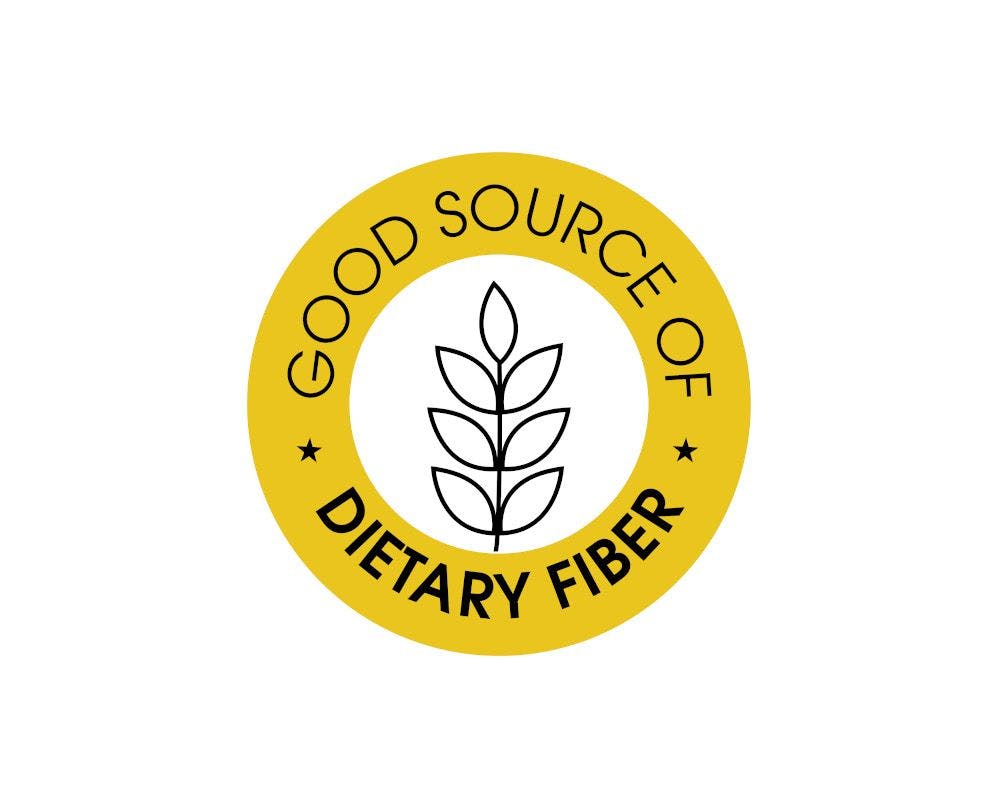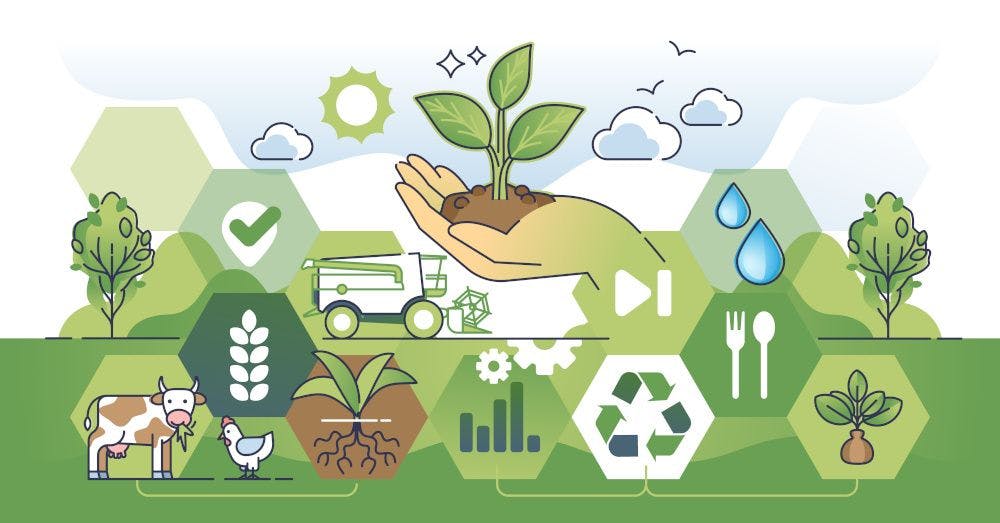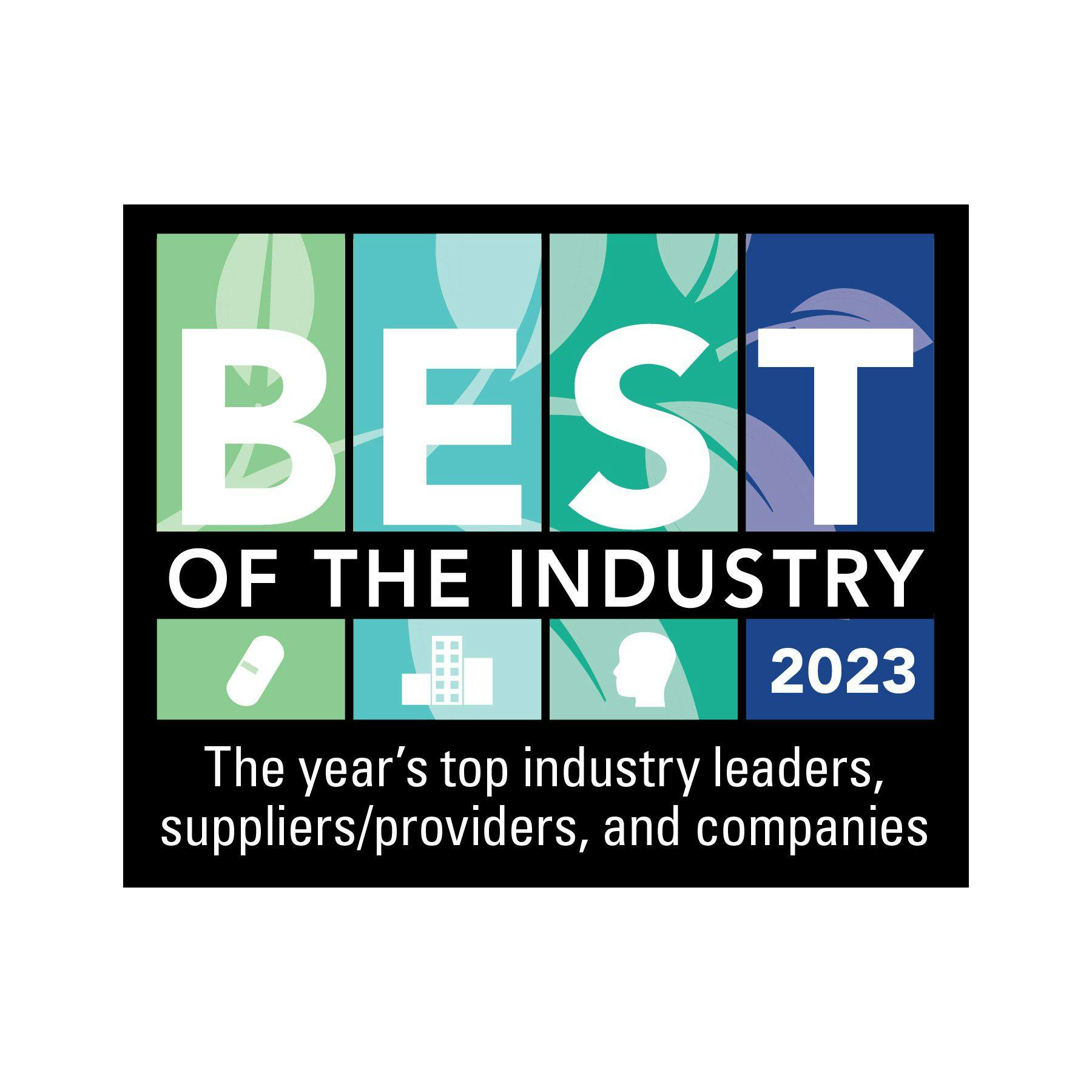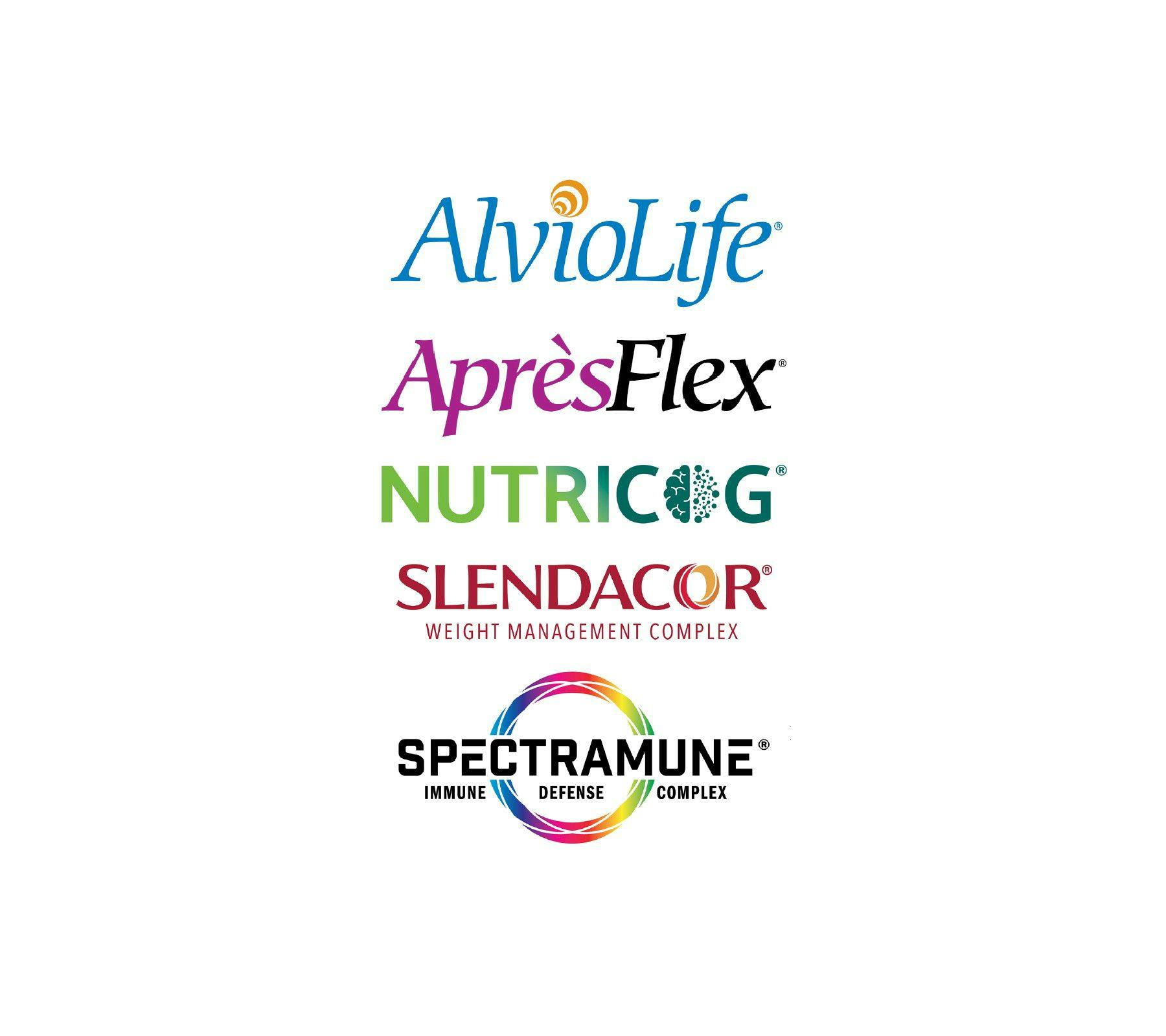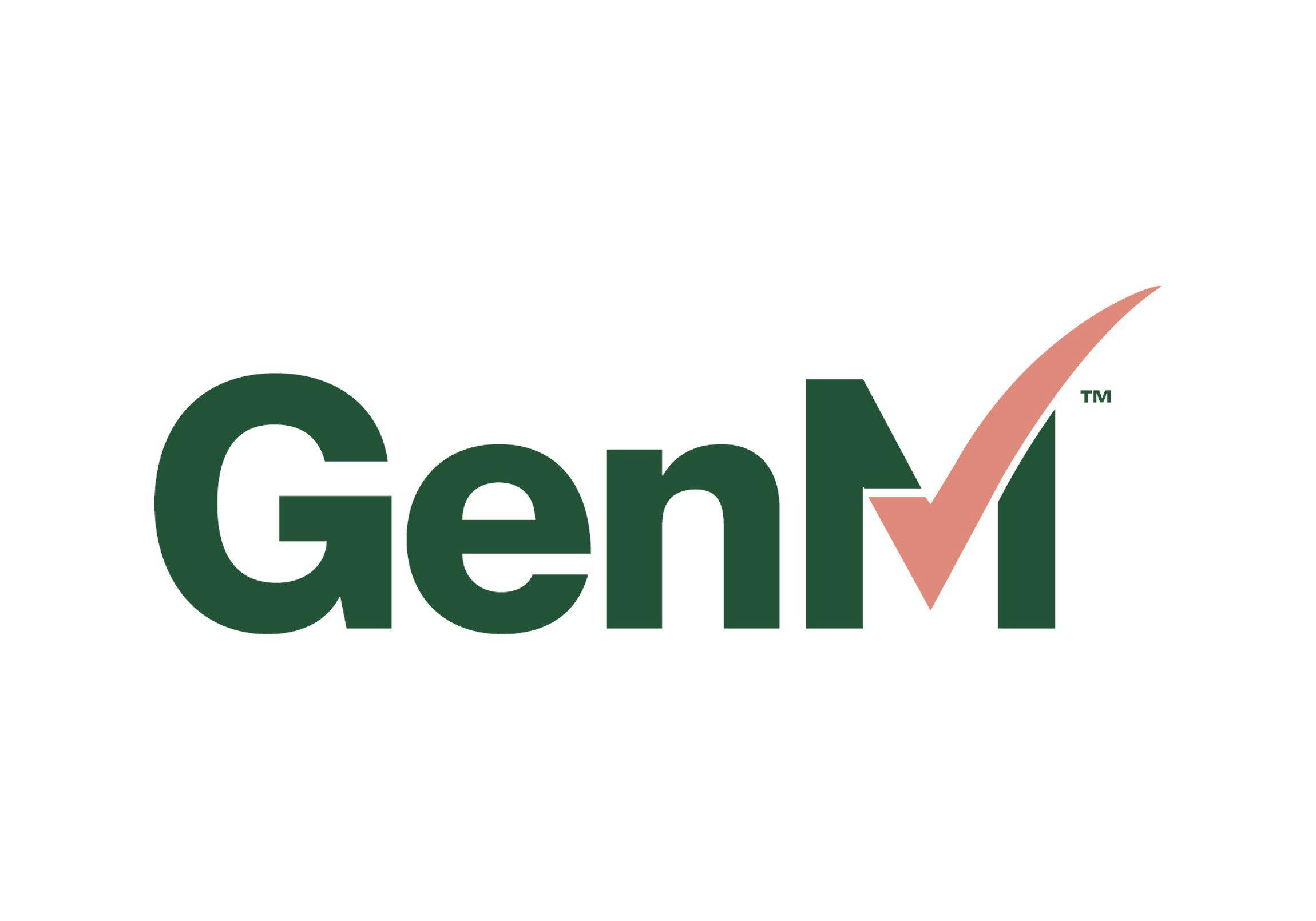Nutritional Outlook’s 2023 Best of the Industry Awards, Service Provider: GenM
GenM is bringing awareness to menopause through brand partnerships that help women more easily navigate their menopause journey.
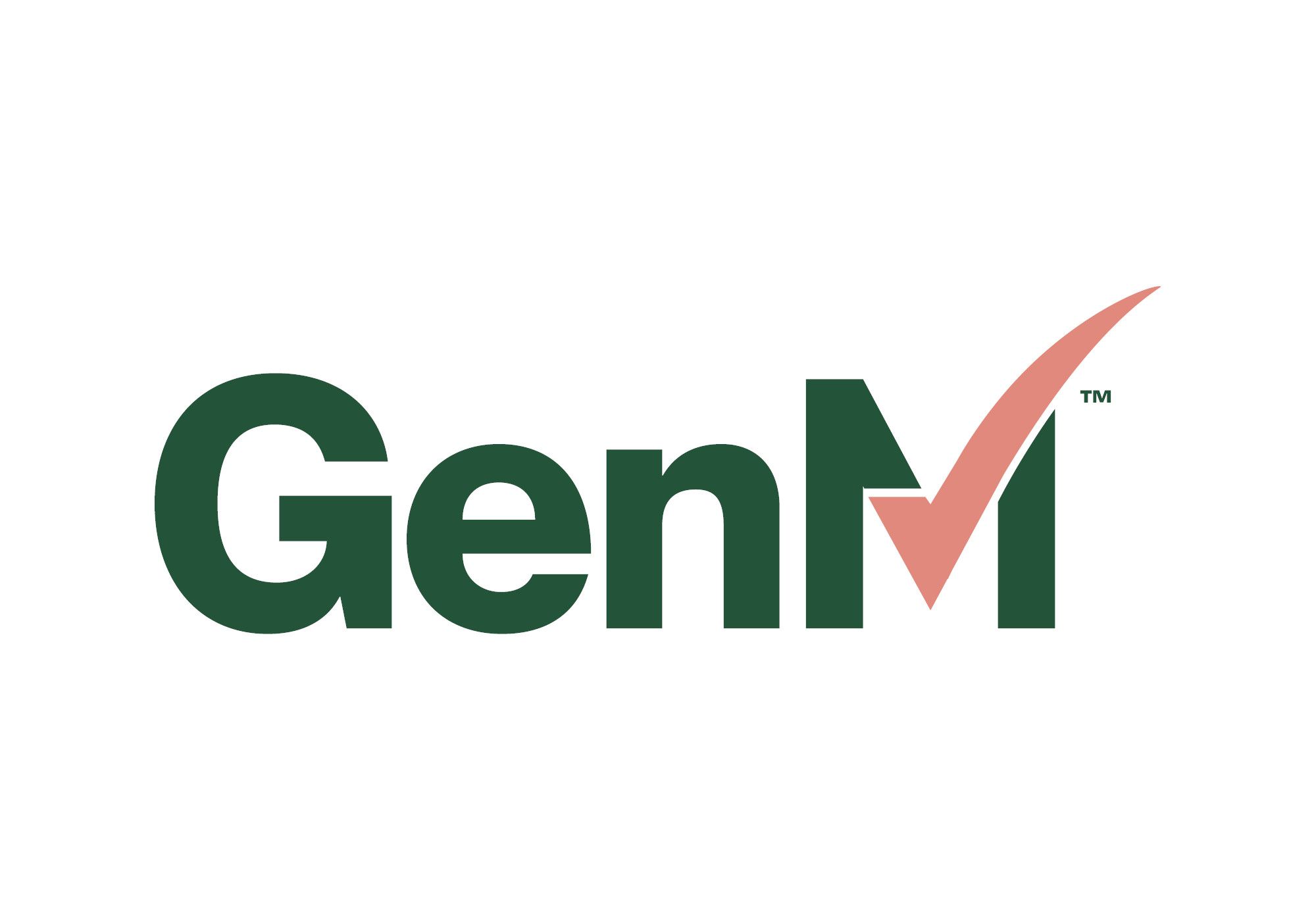
When it comes to aging, women are in an unenviable position. At various stages of their lives, from adolescence to middle age, women are forced to navigate difficult symptoms with few solutions, and little to no guidance. Perhaps no life stage is more difficult for women to navigate than menopause. This is why GenM was founded, to make menopause a more positive experience by helping women through this stage of their life’s journey. GenM does this by partnering with brands and retailers so that women can more easily find “menopause friendly” products and take the guesswork out of managing the many symptoms of menopause.
Founded by Sam Simister and Heather Jackson, GenM is the product of their own menopause journeys, which were both very challenging. Simister was doing a great deal of global travel for work, going back and forth between the U.S., China, and Japan, when she first began experiencing the onset of perimenopause. “I was woefully unprepared, and I started to experience a couple of pretty big symptoms that just knocked me for six,” says Simister. “So, I started to research [the menopause-support product market], and I discovered pretty quickly actually that it was a really disparate landscape and very little information was available.”
Eventually, Jackson began going through perimenopause herself, and struggled significantly with symptoms that she did not realize were perimenopause at the time. Simister helped her realized her situation, and from there she was able to seek out solutions. All this became the catalyst for GenM’s formation.
GenM Cofounders Heather Jackson (left) and Sam Simister (right).
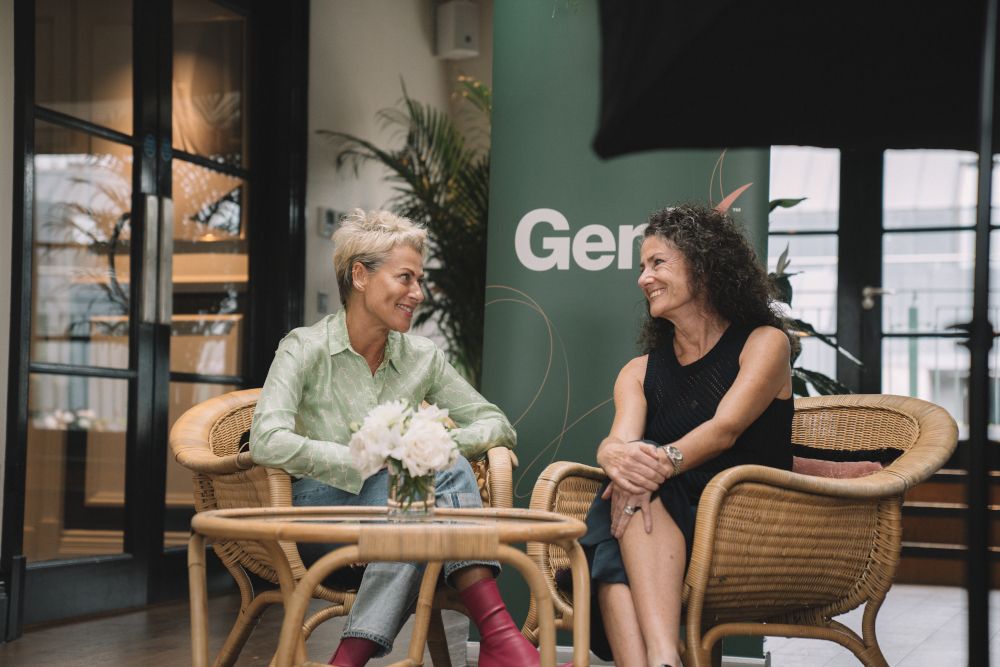
Knowing that the company had to be data-driven, the pair commissioned research. This research, published as The Gen M Invisibility Report, laid the foundation for GenM. “It amplified in an incredible way the voices of women in midlife, and the data was so compelling it gave us the confidence to set up GenM,” says Simister. “It wasn’t a great read, but it provided a phenomenal foundation and springboard from a business case study perspective.”
According to that report, an estimated one billion people globally will experience menopause by 2025, and in the UK alone (where GenM is based) there are 13 million peri- or postmenopausal women, which is a third of the country’s female population. Two in three women are blindsided by perimenopause, and because their partners (67%) as well as children (75%) know little to nothing about what these women might be going through, not to mention the lack of societal support available, it can be a very lonely experience. The report states that 41% of menopausal women feel “lonely, invisible, irrelevant, and dispensable.” Owing to the lack of information and resources available to women on this topic, the report also states that 51% of women can only name three of the 48 symptoms associated with menopause.
Within six months of GenM’s launch, it had 40 brand partners, and this number has since grown to nearly 90. So, in two years, the concept is really gaining traction, but as Simister points out, a lot of work remains. “Although awareness is increasing, which is fantastic to see, the woman’s lived experience is not [improving], and we fundamentally believe that brands have a critical role and responsibility actually to do more to raise awareness, to educate and provide solutions to one or more of a woman’s 48 symptoms or signs of menopause,” says Simister. This is where GenM’s menopause-friendly symbol—the “M-tick”—comes in. It signals to consumers that a product may be helpful to menopausal women.
GenM's M-tick symbol now appears on product packaging to help women identify menopause-friendly products at retail.
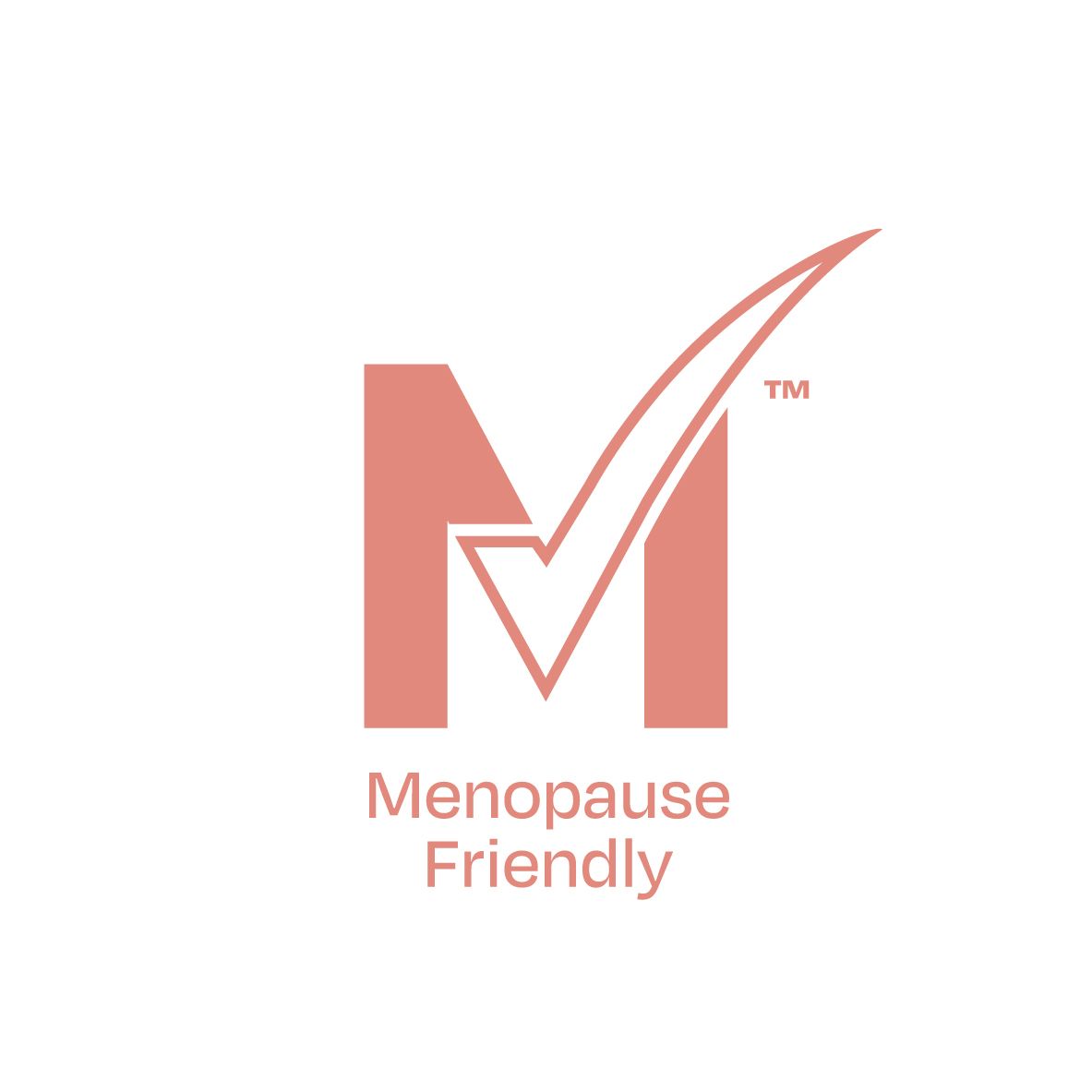
“Within [many brands’] portfolios today, if you think about that 48-symptom opportunity, they have products in there today that can support, ease, or relieve [symptoms],” explains Simister. Symptoms such as dry skin and hair loss, for example, have a bounty of products that women could turn to for support. Other products are less obviously beneficial to menopausal women.
“When having a hot flash, women are looking for a foundation that would stay on their face to allow them to feel confident when working and presenting, and there are products out there that can do that,” she continues. “So, it doesn’t matter which symptom or sector you look at; there are products out there in the masses today, and we know from our research that women are now craving and are pretty desperate for better signposting.”
Simister explains that GenM’s research last year showed that 78% of women would shop for products labeled as “menopause friendly,” and this year that number has gone up to 80%. “That’s massive,” she says. “And that gave us the confidence to launch the world’s first menopause-friendly symbol because we know signposting is critical.”
Through a partnership with Boots, of the Walgreens Boots Alliance, GenM’s symbol is appearing on “wobblers” located at the ends of pharmacy aisles and by specific products that offer menopausal women possible support. The faster women can find the relief they’re looking for, the better their quality of life will be. Same goes for product labels. Simister’s cosmetic foundation example is compelling because products like that allow women to bring normalcy back into their lives and remain confident as they deal with the changes happening to their bodies. The M-tick has the potential to significantly improve how women navigate menopause while also playing a role in educating the public about menopause and its many symptoms.
Example of M-tick wobbler in Boots store. Image courtesy of GenM.
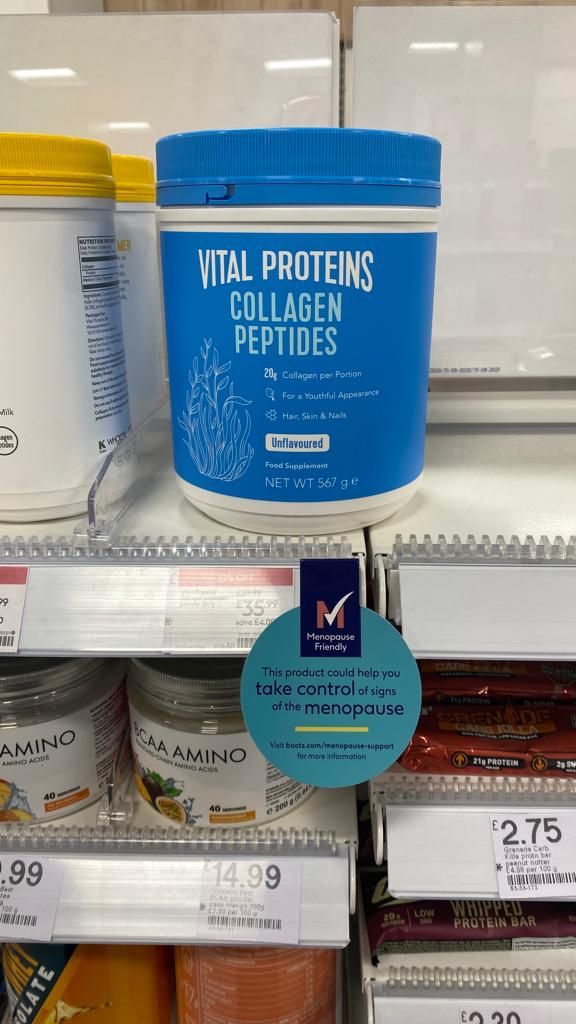
The Boots partnership certainly provides substantial evidence there is a business case for using the symbol. “A company like Boots is not going to do that unless their ROI is significant and the feedback from their consumers, revenue, and engagement has gone through the roof,” says Simister. “This is hard to do. Retailers aren’t agile organizations, and they’re doing it, and I think others will follow.”
She also praised the women-led “challenger brands” carrying the M-tick that have embraced their role in educating consumers. These brands are helping raise awareness not just about GenM but also the needs of women going through menopause. “What won’t work is just putting the M-tick on a product or website or social channel,” Simister explains. “You’ve got to educate as well as signpost.”
With these 48 symptoms and the billions of potential consumers, manufacturers are savvy enough to seize the opportunity menopause support presents. For those trying to enter the space, resources exist to not only help you design a product but also carry the M-tick. Ingredient supplier IFF, for example, has recently become a GenM partner and, using its portfolio of botanicals and probiotics, developed numerous product concepts that tackle menopause symptoms such as mood, hair loss, hot flashes, and bone health. GenM’s symbol also provides a stamp of quality, because as the category grows, there’s bound to be unscrupulous manufacturers leveraging the vulnerability of menopausal women to sell poor-quality products. That is why brands who partner with GenM must meet certain criteria to carry the M-tick, including clinical substantiation.
GenM is growing rapidly, with plans of expanding into the U.S. market as well as looking into licensing the M-tick in Australia and India where GenM is getting a lot of interest from brands. Simister and Jackson are actively building brand recognition for GenM, recently speaking at events in Amsterdam and Dusseldorf as well as in Las Vegas, NV, at SupplySide West. GenM has been overwhelmed by the positive feedback from these events and the level of interest the company is receiving.
The hope, of course, is that interest from industry translates to broad adoption of the M-tick and therefore wide recognition of menopause-related products and their consumers. Simister says that GenM’s goal is to bring the same recognition to menopause that the vegan category has. She points out how much that category has changed, from a niche, ideological consumer base to mainstream acceptance with a wide range of trendy products to choose from.
“The vegan market in the UK is 4% of the population…If you compared that to the audience in the UK that is menopausal, that’s 20%,” says Simister. “Let’s not forget that the vegan [diet] is a choice. Menopause is not. It’s a natural life experience. So, our aspiration is that in 3-4 years’ time, the menopausal market is going to be as big as the vegan market.”
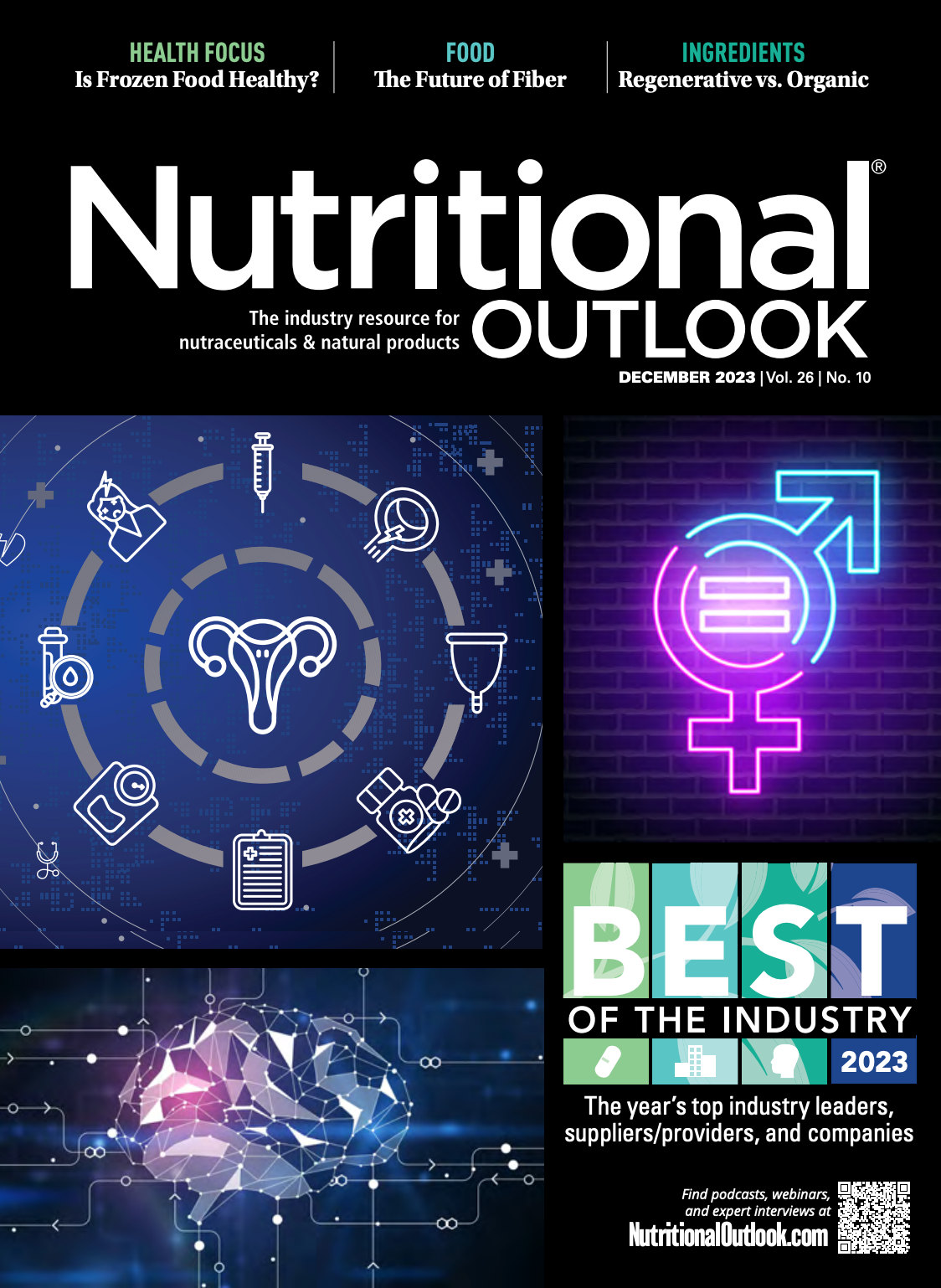
Prinova acquires Aplinova to further increase its footprint in Latin America
April 7th 2025Prinova has recently announced the acquisition of Brazilian ingredients distributor Aplinova, which is a provider of specialty ingredients for a range of market segments that include food, beverage, supplements, and personal care.


